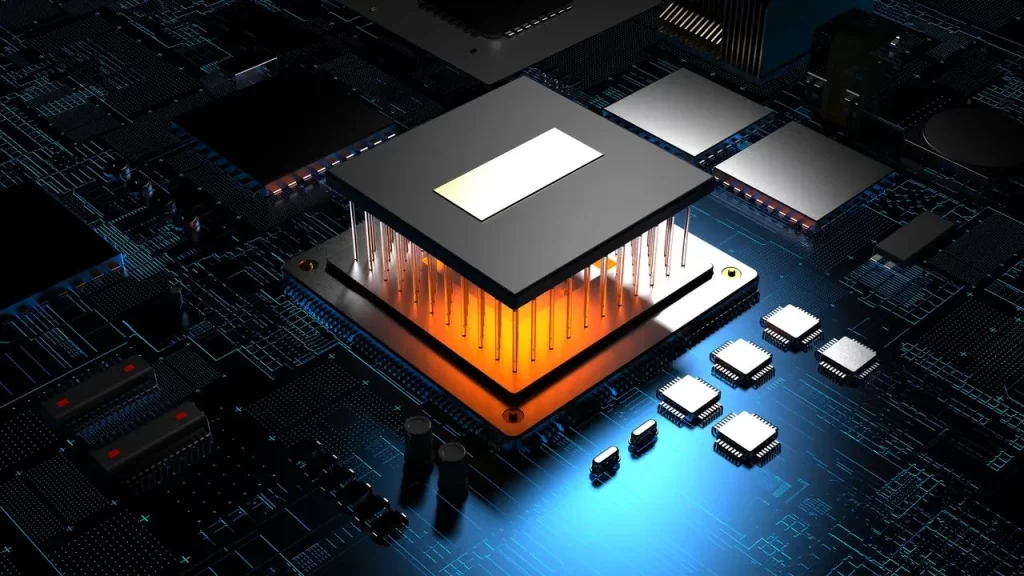A great achievement has been broken on the advancement of data center technology concerning the release of Innodisk’s new line of PCIe Gen5 SSD series. As more applications are written, and more data is generated than ever before, it is now demanded that both artificial intelligence, edge computing, and big data analytics need a more suitable solution than what traditional hard drives were capable of providing.
Innodisk is ready to introduce PCIe Gen5 SSDs that are designed to become the new generation of hardcore industrial solutions for the high-density storage requirements of the future. These SSDs not only bring performance improvement but also introduce a robust framework of reliability and security features critical to the evolving landscape of digital infrastructure.
Unprecedented Speed and Capacity
The primary form factor of Innodisk’s next-gen SSD solutions is the PCIe Gen5 x4 that is coupled with the NVMe 2.0 specification. In combination, they allow reaching incredible sequential read rate at up to 14 GB per second and write rate up to 10 GB per second. This is about 1.5 times higher than in the PCIe Gen4 interface, thus allowing for an increase in the data read rate, a decrease in delay, and general optimization of application performance in specific fields, such as mission-critical environments.
Moreover, leveraging advanced 3D QLC (Quad-Level Cell) NAND technology, Innodisk’s drives offer capacities of up to an astonishing 128TB per unit. This huge density allows enterprises to optimize server space without sacrificing performance, making the drives ideal for hyperscale data centers, cloud service providers, and high-end AI computing nodes where every inch of rack space counts.
The enhanced IOPS performance and low latency also make these drives ideal for real-time analytics, deep learning models, and intensive virtualization workloads, ensuring that data bottlenecks become a thing of the past.
Advanced Security Features
Realizing that security cannot be compromised in the current world, the manufacturer has not spared anything when it comes to employing security on its PCIe Gen5 SSDs. They are compatible and equipped for Self-Encrypting Drive (SED), secure booting models and industrial AES 256-bit full hardware encryption. In order to do this following features allow data to be secure and follow regulatory laws such as GDPR, HIPAA, and CCPA.
In addition, there are Innodisk setting up their SSDs to the standards of Trusted Computing Group (TCG) Opal 2.0 for high-level, policy-based security control. One of the major components of data center dependability, therefore, the integrated iCell technology makes it possible to provide power loss protection in real time. This feature writes cached data to the NAND flash storage instantly on the occurrence of a power failure; this is a lifesaver for most critical processes.
The End-to-End Data Protection and RAID Engine technologies introduced by Innodisk also help to improve data reliability during transmission and storage procedures by providing bit-level error correction.
Seamless Integration and Management
One of the key advantages of Innodisk’s PCIe Gen5 SSDs is their focus on seamless deployment. These drives cater to the Open Compute Project (OCP) Data Center NVMe SSD Specification v2.0 and is VMware Ready certified, which ensures flexibility across the network native environments, virtualized and hybrid cloud solutions.
Out-of-band management Interface (OBMI) support for NVMe Management Interface (NVMe-MI) allows complete management and Monitoring of the NVMe drives enabling easier distributed storage systems management. This makes the management of drives and their health easy to monitor and allow updating of firmware and other operational settings without necessarily causing interruption of the service given by servers hence improving on the uptime.
Innodisk also provides custom firmware solutions to enable flexible tuning of SSD behavior according to specific workload profiles, offering businesses the agility to adapt storage performance based on dynamic requirements.
Thermal Management and Exceptional Reliability
This puts a great amount of heat into the air with PCIe Gen5, an issue Innodisk has taken direct aim at. The new SSDs also have built-in features that cause them to throttle operation at high temperatures depending on the set range of temperature. This contributes to stability of supplies and likewise, safeguards the SSDs against heat degeneration especially when they are used continuously.
Aside from the thermal management, Innodisk boasts a very reliable mechanical structure, which also showcases its remarkable durability. It boasts a high MTBF of 2 M+ hours on the drives and is accompanied by a 5-year limited warranty. Improved by the LDPC (Low-Density Parity-Check) error correction and wear leveling technologies, these SSDs are highly capable of handling various industrial applications, from data centers to edge computing devices with fluctuating temperatures and voltage supply.
Further, the shock and vibration resistance of the materials makes sure that these cases are ideal in highly sensitive assignments for instance, in the defense, aerospace and the mobile data centers where stability is of paramount importance.
Implications for the Data Center Industry
The release of Innodisk’s PCIe Gen5 SSD series is not just another hardware launch; it represents a transformative moment for the global data center ecosystem. As enterprises continue their aggressive digital transformations, they require storage solutions that can keep pace with rising compute demands while maintaining operational efficiency.
By offering massive bandwidth, ultra-high capacity, and best-in-class data protection, Innodisk’s PCIe Gen5 SSDs position themselves as a cornerstone technology for the next generation of cloud computing, AI modeling, real-time data analytics, and edge-based AI inference platforms.
Experts anticipate that PCIe Gen5 adoption will accelerate rapidly, with Innodisk’s solutions providing an early-mover advantage for companies aiming to future-proof their infrastructures. Analysts predict that by 2026, nearly 30% of all enterprise SSD deployments will transition to PCIe Gen5 or faster technologies, particularly within hyperscale and AI-driven sectors.
Innodisk’s strategic focus on scalability, reliability, and open standards compatibility ensures their PCIe Gen5 SSD series will not only meet today’s requirements but will also evolve alongside emerging demands in areas like 6G networks, digital twin environments, and autonomous systems.
Conclusion
The topic of this article is Innodisk foraying into the new age data center through its first PCIe Gen5 SSD series. These SSDs give the fastest read and write speeds that are secure and highly reliable for enterprises to aggressively solve data problems of the future.
It is not just an improvement on the storage solution but it is Innodisk’s way of propelling itself towards the dream of a world propelled by speed, intelligence, doubled with smooth integration of all things digital.







